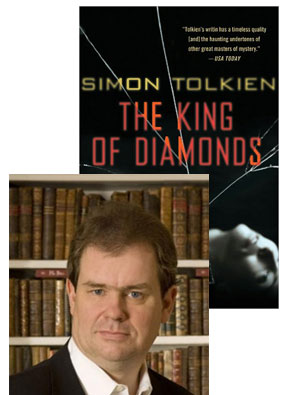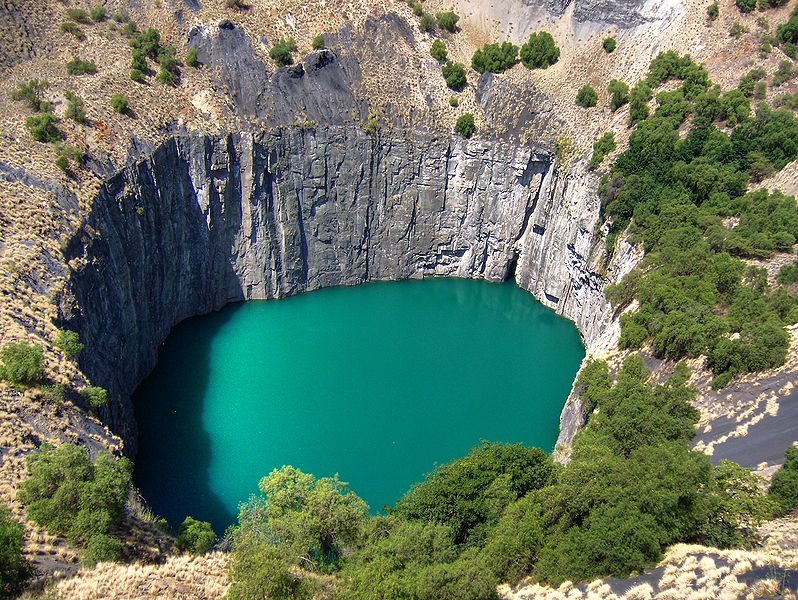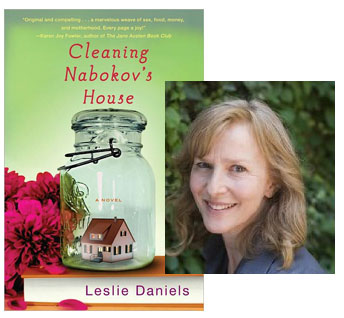Simon Tolkien & the Eternal Allure of Diamonds

Simon Tolkien has a glittering literary pedigree, to be sure—his grandfather’s best-known work is about a gold ring that exerts a dark influence over everyone who comes into contact with it. (Well, everybody except Tom Bombadil, anyway.) But Simon has long been fascinated with another precious gem, and was kind enough to share some thoughts recently on how that curiosity inspired his new novel, The King of Diamonds.
The great Kimberley diamond mine is an awesome sight to behold even now a century after it closed. The bottom is filled with blue-gray water but a hundred years ago it was alive with half-naked men swarming over the surface and burrowing down into the ground like ants, creating the largest hand-dug hole in the world. The mine is a monument to the hold that diamonds have exerted through history on the human psyche and I had the image of it in my mind when I set out in The King of Diamonds to tell a story about these jewels; about men’s insatiable desire to possess them and the consequences of that lust.

28 March 2011 | guest authors |
Leslie Daniels: Sitting Alone, Laughing, Writing

I hope you’ll forgive me a certain amount of prejudice when it comes to Cleaning Nabokov’s House—after all, the author is my own literary agent, Leslie Daniels, here making her full-length fiction debut. It’s a novel about a woman in crisis: Barb Barrett has walked out on her loveless marriage, which has led to her losing custody of her children—basically, as the novel opens she’s pretty much out of it and scrambling to find her way back in. The house she’s just moved into in upstate New York was once Vladimir Nabokov’s home, and she finds a manuscript crammed way in the back that might be one of his. (It’s a stack of index cards, for that extra bit of verisimilitude.)
Now, yes, Barb’s rediscovery of her self-confidence and capability does involve trying to get that manuscript authenticated and published, but that goal actually takes a backseat to a much more unusual revenue stream (the nature of which I won’t spoil for you)… it’s utterly implausible that Barb would get away with this plan, but the voice that Leslie gives Barb goes a long way towards making the story work. (Ultimately, I’d say you should be able to suspend your disbelief just as readily as you would for a quirky romantic comedy at the cinema.) I’ve known for a while that Leslie writes fiction in addition to representing other writers, but I didn’t know what drove her to write this novel… so I asked!
I started writing Cleaning Nabokov’s House in my father’s last year of life. As he was weakening and his language disappearing, I found I could reach him through food and with humor. At the end it was only humor. I wrote for solace then, and to witness the numbered days we had left. During that time I believed I was no longer capable of being happy, but I was funny. At some point in the writing I did while my dad was dying, the voice of the narrator started to emerge, the nothing left to lose, the humor, the grit.
Writing the book involved a lot of sitting alone in my house laughing till I cried and vice versa, but writing down the punch lines and then trying to justify them with narrative and plot. I wanted every single funny thing that came along. If you can be funny, you must, you should. It’s like beauty or the ability to make money, a calling.
Some writers start with a large idea, and I started only with writing, investigating my interests. I put into that early writing on the project all my coordinates: mourning, food, sexual passion, longing, reading genius writers, reading ordinary writers.
23 March 2011 | guest authors |

 Our Endless and Proper Work is my new book with Belt Publishing about starting (and sticking to) a productive writing practice.
Our Endless and Proper Work is my new book with Belt Publishing about starting (and sticking to) a productive writing practice. 
